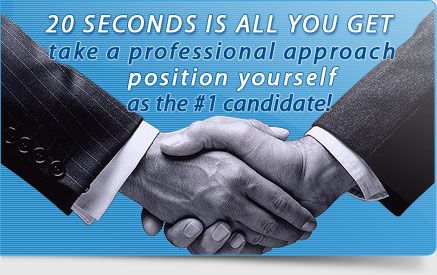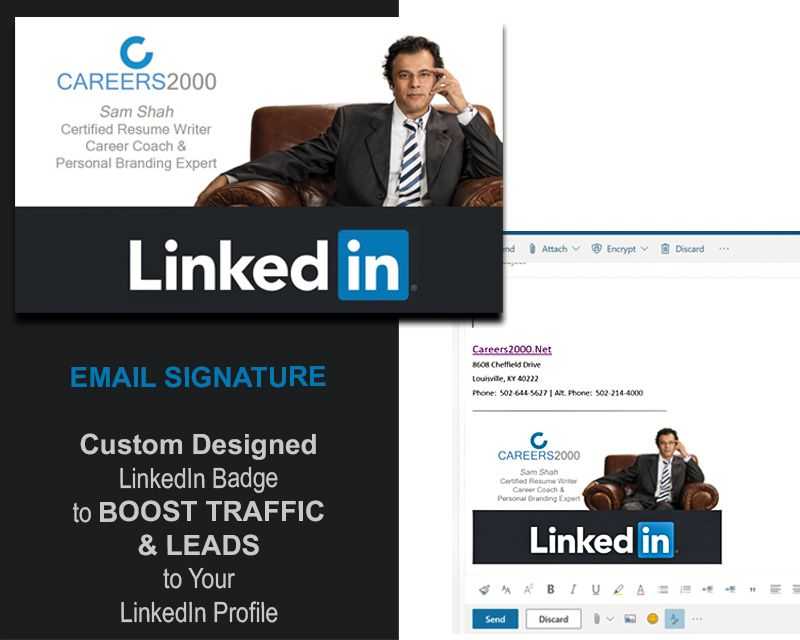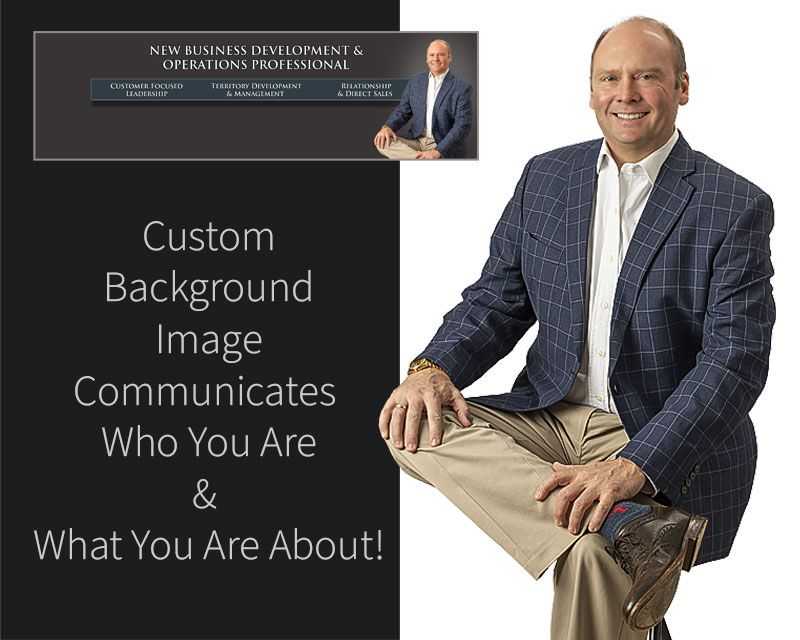


Featured Articles – Career Search Advise
Below are the lists of most popular articles for your use. You will note that three articles are actually a three-part series. We hope that you would find these articles and tips beneficial during your career search; we are confidant that these articles will serve as a valuable resource in your career endeavor. If you have any questions, call me 502-644-5627 or 502-214-4000.
PLEASE CLICK ON THE ARTICLE TO VIEW THE CONTENTS.
Word Count = 830
Ponder this thought for a moment if you will: Are you your own worst enemy? Recently, it occurred to me while talking with a job seeker that many of you can be your own worst enemy when it comes to conducting an effective job search. In this 3-part series we will highlight how good people get in their own way.
The following letter may seem unbelievable but every word of it is true, except for the confidential information that has been deleted, and, like me, you probably question this job seekers sanity or at least their business sophistication. Imagine how this company felt towards this applicant to take the time to fire off this response.
Dear Mr. John Doe:
I am enclosing a check in the amount of $748.68 to reimburse you for certain expenses incurred in connection with your interview trip to _______ located in ________. Please note that adjustments have been made to the amounts that you submitted. The adjustments are explained below
1. Hotel
Without consultation and prior approval, you selected a “5 Star.” Your decision to stay at the resort had no business purpose. Such accommodations are inconsistent with our reason for bringing you to _________. The resort was a great distance from our office and, at $222.00 per night, would not be cost-effective. It is our practice to provide comfortable lodging, which is within walking distance to our office, and at a rate of $99.00 per night. As such, we have adjusted reimbursement for lodging to $125.00 per night.
2. Room ServiceYou submitted a request for reimbursement in the amount of $36.68 for two room service charges. This is approved without adjustment.
1. TelephoneYou submitted a request for reimbursement of 15 long distance telephone calls and one local call which were charged to your room at the resort totaling $98.56. None of these calls were to ________ or appear to have any business purpose related to the interview session. In the interest of fairness, we have allowed $15.00 as reimbursement for telephone calls.
2. Airfare
You submitted a request for reimbursement of air travel in the amount of $402.00, plus an additional of $50.00 penalty for changing your ticket. You have not provided any substantiation for the $50.00 penalty. Notwithstanding, we have approved the entire amount of $452.00
3. Transportation
You submitted a request for reimbursement of limo service in the amount of $260.00. Had you selected the hotel nearest our office transportation to and from office would have been unnecessary. In addition, limo service at $70.00 – $80.00 per trip versus taxi fare at $20.00 – $30.00 per trip is absolutely excessive. We have allowed $120.00 as reimbursement for transportation. This amount allows you every benefit and is more than fair in our estimation.
In summary, your decision to stay in a four star resort and being squired about by limos was yours alone. ___________ will not be financially responsible for it. It was our intention to bring you to __________ to discuss employment opportunities and to provide you with reasonable business accommodations during your stay as our guest. We have been more than fair in the determination of what is reasonable in this matter. If you would like to discuss this further, call me.
Not preparing for drug testing. I’m sure many of you don’t think of this – you have to prepare for a drug test. Believe it or not, certain everyday substances can indicate the presence of an illegal drug in your system, and this will eliminate any change of you getting the job.
According to a report by the Los Angeles Times New Service, a study of 161 prescriptions and over the counter medications showed that 65 of them produced false positive results in the most widely administered urine test. The moral of this story – for three weeks prior to a drug test you may want to avoid the following substances that can cause false positive drug test results or tell the human resources what you have taken over the last couple of weeks.
THC – Substances or Conditions which can cause false positives
Dronabinol (Marinol)
Ibuprofen; (Advil, Nuprin, Motrin, Excedrin IB etc)
Ketoprofen (Orudis KT)
Kidney infection (Kidney disease, diabetes) Liver Disease
Naproxen (Aleve)
Promethazine (Phenergan, Promethegan)
Riboflavin (B2, Hempseed Oil)
Amphetamines – Substances or Conditions which can cause false positives
Ephedrine, pseudoephedrine, propylephedrine, phenylephrine, or desoxyephedrine
(Nyquil, Contact, Sudafed, Allerest, Tavist-D, Dimetapp, etc)
Phenegan-D, Robitussin Cold and Flu, Vicks Nyquil
Over-the-counter diet aids with phenylpropanolamine (Dexatrim, Accutrim)
Over-the-counter nasal sprays (Vicks inhaler, Afrin)
Asthma medications (Marax, Bronkaid tablets, Primatine Tablets)
Opiates – Substances or Conditions which can cause false positives
Poppy Seeds
Tylenol with codeine
Most prescription pain medications
Cough suppressants with Dextromethorphan (DXM)
Nyquil
Don’t ask how you did at the end of the interview. This is not grade school. You are an adult, capable of presenting yourself in a confident, mature manner. That’s the final impression you want to leave your interviewer with.
Word Count = 898
In Part 2 of this 3-part series we will ask you again to ponder the thought for a moment if you are you own worst enemy when conducting an effective job search? In Part 2 we continue to highlight how good people get in their own way.
Here are some of the ways job seekers can sabotage their job prospects:
1. Starting your cover letter with a question that can be answered with the word “No” – For example: “Would you like a project manager who can speak four languages?” “Are you in the market for an aggressive, hard-hitting sales leader?” As simple as these sound, it gives the decision maker an “easy out.” You don’t want to lead someone in the wrong direction, and “No” is definitely the wrong direction.
2. Not having a strong, single focus to your resume – Ms. Smith is good at consumer marketing and Internet startups. Mr. Jones is a quality specialist and a HR whiz. The trouble is that few people are looking for these exact combinations; they tend to want one thing or the other. You also make yourself needlessly hard to categorize in a compartmentalized world of job titles and job functions. The solution is to lead with the experience most relevant for the type of position you’re searching for, while treating the rest as “additional experience.”
3. “Dumbing down” your resume so you don’t look overqualified to potential employers – My advice is this … you can’t land your dream position by presenting a resume with undervalued achievements. Your resume is the first perception a potential new employer has of you, and the only way you can translate your core values and how you’re different and unique from the competition is to write a document that clearly demonstrates all of your accomplishments, skill-sets, education, and core competencies. It’s impossible to do this with an abbreviated one-page resume.
4. Sending companies a video resume – This type of document comes across as if you’re auditioning for “American Idol” or “Survivor.” Video resumes are not an accepted way to convey work experience and using a video resume presents four problems:
- For years employers have discarded resumes with attached or included photos of the job seeker, for fear that they’ll be at risk of discrimination charges from a diversity applicant if they don’t subsequently interview the person. A video resume would have the same effect.
- Many employers and recruiters lack the software necessary to view a video resume.
- An effective video resume can last as long as four minutes. If most hiring managers don’t have time to read a traditional resume, they don’t have time to view a Steven Spielberg production of your resume.
- By using this unorthodox approach, you’re taking the chance that some individuals will see you as a maverick and screen you out. Because you’re not abiding by the commonly accepted method of conveying information about your background, employers and recruiters could see you as unconventional and question your ability to fit in with the corporate culture.
5. Believing that the purpose of an interview is to get a job – You couldn’t be more wrong. Approaching an interview with this attitude will start you off at a disadvantage. There is a marked difference between people who are out to get a job and people who are out to do a job. Employers don’t conduct interviews with the intent to give anyone anything. They conduct interviews to get a job done. If you come across as a problem-solver who can do the job, you have a shot at that job.
6. Lack of preparation concerning questions on past career choices – This isn’t to be confused with a discussion of accomplishments, goals, or ambitions. Smart interviewers constantly look for a common denominator – how the candidate’s career choices relate to or prepared him/her for this job. The interviewer doesn’t want a justification for those choices; that would be a reactive rather than a proactive response.
For example, we heard of a candidate who was asked why he’d taken three similar sales jobs in three years. He fell into the trap of defending himself even though he had a clear strategy. Each new job had supplied a different kind of skill and all were needed for the sales job he wanted now. Had he presented an analysis of why his choices were important he would have impressed the interviewer. Instead, the response he gave raised suspicion, which defending oneself always does.
7. Surrendering leadership of your problems – Have you ever seen two people go through a job search? One delves into it and grows because of this involvement, while the other goes through a search and walks out devastated. What’s the difference? I suggest that one big factor is attitude. During a job search many of our greatest battles don’t lie in the external world but within us. That’s why savvy candidates learn early on to always keep their minds on what they want and off of what they don’t want.
If you focus on what you feel you can’t do, you hardly notice what you can do. By changing the focus – looking at solutions, not problems – you start to reach for that carrot and stop worrying about the stick. To repeat the words of a steelworker on the 76th floor: “Don’t look where you don’t want to go.”
Word Count = 701
In Part 3 of this 3-part series we continue to highlight how good people get in their own way during a job search, my hope is that in this 3-part series you will avoid being one of those good people that get in their own way.
1. Taking corporate job descriptions as gospel – They seldom accurately describe what the job entails. It’s your responsibility to dig deeper. Beyond a headhunter’s or HR person’s description of a job. When running classified ads, companies are forced to reduce a complex job to fifty words, which is next to impossible.
2. Listing office phone numbers – Many resume writers think they’re being helpful to prospective employers by listing their office phone number on their resume. They’re wrong. Job hunters suffer not from being unavailable but from being too available.
Being too available can scare employers. This is why unemployed job applicants rank lower than candidates who are working. They’re freely available, and may be willing to join anyone’s payroll. They’re required to give up nothing. The employed worker, on the other hand, must make a sacrifice to join an employer and is therefore more desirable.
3. Providing a generic non-specific subject line for your email transmission. – In a world of click and send job postings and canned letters that pass for communication, I prefer more substantial contact. That way you can be sure they hear and you know they’re listening to you. For that reason I personally prefer face-to-face discussions and telephone conversations, but hate the impe4rsonal emails. Nevertheless, emailing is dominant when we search for new employment, therefore, when submitting your resume don’t use your name in the subject line, such as “John Smith’s Resume.” Sadly, most job seekers say something like “Resume Submission,” or worst “Resume Doc#2 Final.”
Stating a subject such as “Resume of (your name,” “Vice President,” “Manager,” or “Sales Representative” will do nothing to gain a reader’s interest in opening up your email versus the dozens of others on the screen.
What you need is a hook in your subject, something to convey that you could fill an important company need.
Here’s how to transform the above subjects into eye-catching information: “Vice President-Finance, with IPO and Multiple Turnaround Successes,” “Manufacturing Manager with Plant Start-up Lean, and JIT Experience,” and “Medical Device Sales Representative – New Account Development/New Market Entry.”
With the added information, a recruiter or prospective employer has every reason to open up the email.
During the interview process, a smart job seeker asks, “What qualities other than skills and experience are needed to succeed in this job?” – You should spend at least as much time walking with the interviewer through a typical day, month, and year as talking about your experiences and past achievements. No interviewer can answer your questions without revealing a great deal, unless (the worst scenario) the interviewer has no idea how you’d spend your time. Evasiveness should raise a red flag.
4. Following each interview, conduct an analysis of what worked and what didn’t work – After you do this, incorporate what you learned into your preparation for the next interview. One of the most helpful interviewing techniques that I discovered for my clients is for them to take along a 2-3 page presentation to talk about, a hand-out on a technology or performance program that the designed, or something that will make them as, “Wow. Did you do this yourself?” Pure talk not backed with examples can be too subjective for an interview situation.
5. Ships operate the way people ought to. Why? Because ships always have a destination. How many people do you know who can say the same thing? – The notion of ‘keeping your options open” is a misguided approach to job-hunting, managing a career and, especially, resume writing. A prospective employer should know in the first two to three lines of your resume what type of position you’re looking for, and in the first 10 to 15 lines the greatest benefits you can bring to the position. Having two or three resumes with different targets still allows for an effective, manageable search. If you’re unable to narrow your target, focus on assessing your skills and career research, not writing your resume.
Word Count = 1,106
It’s not easy to pinpoint what interviewers want. You may be confronted with as many different approaches as there are interviewers. However, here are 10 qualities that I look for during an interview:
- People with a lot of energy. Some people are, quite simply, born with more energy than others. At an interview, or almost anywhere, they naturally exude vigor, enthusiasm, and drive. They want and need to be active, up and doing. You can sense this quality in a person almost as soon as he or she walks into the room. It is an innate drive that puts a spring in his/her step and makes his/her eyes sparkle. Put your money on just such a person.
- People who channel energy into their work. Do not be deceived by people who talk about hard work and say what a lot of hard work they do. To the lazy person, everything is hard work and he or she spends much or all of his/her time complaining about it.
One candidate who did not get the job said in an interview, “I met a few people in my time who were enthusiastic about hard work, but it was just my luck that all of them happened to be men I was working for at the time.” Solid evidence of an individual who has a strong work ethic includes:
- Parents, heroes, or mentors who believed in hard work
- Work-oriented spare-time interests
- Willingness to take a second job
- No concern at all with hours worked — no clock watching
- High career goals
- Completes anything undertaken
- Paid own way through college
- Evidence of role awareness. Oscar Wilde’s observation that “it is only shallow people who do not judge by first appearances” is more perceptive than might at first be imagined. Candidates who present themselves for interviews should be aware that they are onstage. If the candidate is at all sensitive to the expectations of corporate life, he or she will have dressed with care and got the rest of his/her act together, too.
If a candidate arrives in attire more suitable for a golf outing than a corporate setting, then you may immediately infer that he/she lacks role awareness. And if he or she lacks it on this particular day, you may be sure he/she will never have it.
- Inner motivation based on family background. It’s not so much what you have or where you were born that counts as what you did with what you had and what you make of your own life. In trying to determine what you did with what you had, I always subtract what you began with from what you have now and look at the difference.
- Emotional maturity. People grow up three ways: physically, intellectually, and emotionally. Most executives mature physically and intellectually, but emotional maturity can never be taken for granted. While you can see that a person is physically fully grown, and you can check his/her educational record for intellectual ability, badges or certificates of emotional maturity are unavailable.
Spotting immaturity – and, therefore, maturity – is difficult. However, the immature person inevitably possesses two qualities to mislead you: childlike charm and, as the result of long experience, the capacity to distract attention from his/her shortcomings.
Immature people are not a good employment risk as line executives because, like most children, they are essentially concerned with their own immediate gratification and because they tend to see the employer as a sort of Santa Claus. What they want is to have someone to look after them just like their parents did until they left home at age twenty-eight.
Conversely, the best index of maturity is consideration and concern for the well-being of other people. Three excellent clues to an individual’s emotional maturity are:
- Judgment. Has he handled himself well in his business affairs – or has he embarked upon harebrained, get-rich-quick schemes?
- Finances. Has she lived within her means? Is she financially secure enough to suggest that her personal, financial money decisions are being chosen with a cool, clear, adult head?
- Number of past employers and the manner of departures from them. Has he pursued his career in a mature and adult manner? Has she job-hopped without realistic consideration for the future of either her employers or herself?
- Someone who can profitably channel hostilities. You want to hire a person with fire in his or her belly, of course, but at the same time, you do not want a rebel without a cause. The best job-seeking candidates can temper hostilities with tact and, if they cannot do that, you as the interviewer may be in for trouble. So, watch for evidence of spite unreasonably directed toward previous employers and associates.
- The need to finish a task begun. Evidence of this agreeable condition can be discovered by looking for a goal-oriented individual with a history of completing anything undertaken. Examples include: finishing a college degree, writing an article and getting it published, or successfully putting together a sound and profitable business enterprise.
- A candidate who wants to do a good job, not just earn a paycheck. If you hire a mercenary, someone who believes in your cause only as long as the money is good, then you may be courting trouble. Such a person usually lacks any inner job motivation, and, as a result, often harbors a deep resentment of his/her dependency upon the employer. Consequently, he/she will be ambivalent to a fault, particularly if well paid.
- Loyalty to your cause. Loyalty means not that you agree with everything another person says or that you believe someone else is always right. Loyalty means that you share a common ideal with another human being and, regardless of minor differences, both fight for it, shoulder-to-shoulder, confident in one another’s good faith, trust, constancy, and affection.
The key to loyalty, whether you are recruiting an executive or making a friend, is in finding that common ideal, and once again this should stem from an individual’s deepest underlying values. If these values are not in harmony with those of yours or the company’s cause, then loyalty may be unattainable.
- Compatibility. Individuals make up teams, but compatible individuals make the best teams. Any candidate who is unnecessarily touchy and thin-skinned at an employment interview will probably be abrasive and disruptive if he/she joins the team. A get-along, go-along person who also works hard is a jewel because his/her shine attracts people like him or her.
Remember that the opposite is also true. The bad has a tendency to drive out the good.
Word count = 833
Popular business magazines and books are loaded with self-help advice for life and work. But there is little solidly researched, deeply informed, demonstrably practical material to help people take care of their job searches.
In this article, we’ll discuss a wide array of topics (in no particular order) and offer advice we think is timeless as well as priceless.
Strategy #1 – Befriend gatekeepers. Many ill-informed job seekers use every single tactic they can get their hands on in an attempt to get through, around and over the gatekeepers. Guess what? It didn’t work ten years ago, and certainly doesn’t work today. In preparing to write this article I personally talked with several gatekeepers from companies that I regularly work with. Here is what I asked them:
What is the biggest mistake job seekers make whenever they call you? And here is the answer I received most often: “They lie like a rug.”
These are the unedited, actual words repeated by the majority of gatekeepers. Here’s my advice: If you’re ever tempted to lie to a gatekeeper – don’t. Be friendly, professional, and tell the truth. Personal assistants already know everything, everyone, and every place that their bosses deal with. Lying is pointless.
Strategy #2 – Here is a basic rule, whether you’re in a job search, dealing with people or growing a business: The right risk brings you closer to the right life. What is the right life? The right life is a life where you feel more like yourself, when you’re doing what you want to do – not what other people tell you to do. Where you recognize that you were given a gift when you came into this world, and that your job is to discover that gift and develop it to the point where you can give it back to others. The meaning of your life comes from giving that gift back. Any risk you take should, in some way, enhance your ability to discover your gift, to develop it or to raise your chances of giving it back. The first key ingredient is to believe that you have a true talent. The second key ingredient is to believe that you’ll not be totally happy until you develop that talent. The third ingredient is to ask yourself, “When am I going to start doing that?” And the answer to that question is start now.
Strategy #3 – Listen to those who know more than you do. Someone knows more than you do. That may be hard for you to believe but it’s true. And some of those who know more than you will share that information. Find them. Ask for their help. Unfortunately, very few job seekers ask and even fewer do what they’re advised. Don’t be like that. When you ask, really take the advice that’s offered. After all, you may be asking someone who knows more than you. Don’t waste the exchange.
By the way, do you want to know how to find out if other people know more than you do? LOOK AT THEIR RESULTS. RESULTS NEVER LIE. If their results are better than yours, then they know something you don’t know. Or maybe they’re just willing to do more than you’re willing to do. In any case, pay close attention.
Spend some time with those who are doing better than you. Observe them. Listen to them. Figure out what they’re doing, and then go do it yourself. If you duplicate their effort, then you will duplicate their results.
Strategy #4 – Every correspondence you send to a hiring authority must be a quick read. That doesn’t necessarily mean it must be short (but shorter is always better). However, what you write must have several obvious entry points. So, no matter where the hiring authority chooses to “opt in,” he or she will read something that makes total sense and that prompts him or her to quickly take one of two actions:
- Move to another part of the correspondence and continue to read.
- Make a hand-written note on the correspondence and redirect it to someone else in the organization.
Strategy #5 – Strictly adhere, without exception, to the “96-hour rule.” Don’t send anything out in the mail unless you’re prepared to follow-up within 96 hours after it has landed on the person’s desk.
The biggest complaint I hear from hiring managers is this: people ask for a meeting or apply for a job, and then don’t follow up. The job application process isn’t complete without a follow-up. Recruiters and employers are busy. It’s up to you, not them, to press your candidacy forward. A good follow-up is also a good indication to a manager of your overall work habits.
Always mark a follow-up date on your calendar. When that day comes, pick up the phone and call the employer. You have two simple goals: to send a message that you’re a serious candidate, and to gauge your job search status or follow up on the interview that you already had.
Word Count = 956
Don’t even think about reading this article without a highlighter and a pen handy. There is a significant amount of good career/life advice in the following 5 lessons … and you’re going to want to highlight information to refer to again later.
Lesson #1: You can’t get a good deal from a bad company. This is a really important one! I’ve tried on the behalf of outstanding candidates to secure a good offer from a bad company … but it just doesn’t work. It can’t be done. Bad companies became bad because they do bad things. Don’t fall victim to thinking you can be the one person who is going to get a good deal. And if you try but get burned, it’s your fault, not theirs. I once conducted a search with a local company and when we signed the search agreement, it just didn’t feel right. Sure enough, the deal fell apart. I learned a couple of lessons. First, follow your gut. If the deal doesn’t feel right, don’t do it. Second, an unscrupulous company will always try to take advantage of the situation. Don’t blame the company; it’s only following its nature. Blame yourself for being willing to get close to it.
Lesson #2: Don’t make it your goal to be the cheapest employee they hire. Make it your goal to be the best employee they hire. Companies that only think about money when hiring are not good employers. Companies that sell only on price are rarely good companies to buy from. Anyone can offer you a product or service for a nickel less. And any company can offer you a position at below market value. But when you give up money, you give up something else: quality, service, or a piece of your integrity. Don’t underestimate the willingness of most companies to pay more in order to get more. Many companies hire on ability, not price, and are willing to pay more for the peace of mind that they’re hiring the best person available.
Lesson #3: Talk to smart people. There’s an old saying that people would do better if they knew better. So, ask people who know what you want to know to share what they know. They will more than likely be willing to share information with you. The more information you have at your disposal, the better you’re prepared in the decision-making process. When faced with a situation, you’ll have research you can fall back on that will help you make the best decision you can. You’re no longer “in the dark.”
A word of caution: Don’t argue with the people from whom you’ve asked the information. When they tell you what they did to become successful, don’t say things like “that won’t work for me.” I’m amazed when people who are trying to become successful feel they have the right to argue with those who are successful.
Lesson #4: When you have a problem … you have a problem. Have you heard this before? There are no problems, only opportunities. The motivational types love that one. What planet are these people from? When you have a problem … you have a problem. Period. They are not opportunities. They are problems. And they must be dealt with like problems. Of course, these pie-in-the-sky thinkers who say this are also the ones who are out there saying, “Every cloud has a silver lining.” Not where I come from. Sometimes the sky is black and all it does is rain and storm and make a mess. And sometimes when it storms like that the only thing you can do is seek shelter. There is no silver lining at that lesson. Just brace yourself for a storm!
The people who say this kind of stuff are well-meaning. I know all they’re trying to do is to get you to put your problems into perspective, and that all problems eventually hold some good. But cramming motivational clichés on people when they’re facing real turmoil is insulting. Look, a problem is a problem. Hurt is real. Stress is real. Pain is real. These are the realities of life. There is no help in sugarcoating them. While every problem can teach us a valuable lesson, it still needs to be called a problem and dealt with as a problem.
Lesson #5: Establish priorities. Do you have things in your life that need to be done? Things that you really want to see accomplished? Yet you just have not been able to find the time to get them done? Right now face the fact those things are never going to get done unless they become a top priority to you. Figure out what is really important to you. In other words, establish priorities.
Is your priority to find a new position or get away from a bad boss? Face the facts. In the normalcy of life sometimes the things you don’t want to do have to be your priority. Life is full of have-to’s. There is no way around it. I have them. You have them … things that we’re not wild about doing but still have to do. The key is to figure out how to get them done and still have time to do what you want to do, right?
There is plenty of time to do what is really important to you. Stop being frustrated. Yes, time is short and as we age, it seems to get shorter. But there will never be enough time to do everything there is to do. However, there is plenty of time to do the things you really want to do. If you want it badly enough, you will either find the time or make the time.
Word Count = 1,109
Step One: Preparation
1. Before you can assess a job offer, you must make sure you have information about the market. Important research you should do:
- Identify salary averages for your field and in your geographic area of interest.
- Know what average salaries your peers received (i.e. those of Carnegie Mellon graduates with similar experiences).
- Identify norms in your field as far as which things you can negotiate, and which things are non-negotiable such as health insurance or location.
Where can you find this information?: See the end of this career brief for resources. You can also network with your Career Consultant, faculty, internship supervisors, mentors, etc.
2. Identify and rank your value issues. This will help you remember that an offer is not just about salary, but it is also about what you value in a position. Issues may include:
|
|
Benefits |
|
Low Stress Level |
|
Recognition |
|
|
Challenge |
|
Making Decisions |
|
Responsibility |
|
|
Competition |
|
Mental Stimulation |
|
Salary |
|
|
Flexibility |
|
Personal Growth |
|
Stability |
|
|
Helping Others |
|
Physical Work Environment |
|
Supervisory Style |
|
|
Independence |
|
Prestige |
|
Teamwork |
|
|
Location |
|
Public Contact |
|
Variety |
3. Decide on the minimum amount of compensation that will make you satisfied – make it realistic with the type of job offered. Establish a budget and don’t neglect to account for taxes taken out of your pay. There is no point in accepting an offer if you think you’ll be unsatisfied and want to look for another job in the near future. If an employer refuses to meet or exceed this amount, it is to your advantage to keep looking.
Step Two: Know The Employer’s Compensation Guidelines
How does a job offer process develop? Although there are many ways that employers decide on the initial offer, they are typically presented from one of three different viewpoints. Companies fall into one of these three categories depending upon their attitude about salary and negotiation. Here are those various philosophies and what the difference might mean to you:
- Fixed Offer: This type of company will tell you that they carefully research the job market and they make a very fair and firm offer. You can negotiate all you want, but it won’t do you any good. They operate on a take it or leave it basis so you may not want to waste your time negotiating.
- Pay-Grade System: This is a system in which a salary range has been set and you will be paid within this range based on your experience and the duties associated with the job. However, you can often negotiate within the salary range. The pay-grade system is the most common compensation system encountered.
- The Negotiator: This type of system is rare because most organizations work within a structure. In this framework, the employer will have the authority to raise or lower your salary without going through bureaucratic red tape. You can definitely negotiate with this type of organization.
Step Three: Salary & Benefit Negotiation
If an employer makes an offer that is below your expectation, you don’t want to offend them so you might start the conversation by asking what the benefits include. To proceed, you might want to use one of the following approaches to begin the negotiation process:
Approach 1:
“I am very interested in the position, but I would like to discuss the salary you are offering.”
Approach 2:
“I am very interested in your company. Thank you for the job offer. I wanted to know if the salary is negotiable?”
When using either approach, be certain to support your case by stating your skills, the average salary range for your level of experience in your field, and the average salaries for Carnegie Mellon graduates in your field. It is best to let the employer respond and then continue the discussion from his/her lead.
Based on an employer’s compensation guidelines, you may not be able to negotiate a higher salary. However, you may be able to increase your compensation in benefits. Negotiable areas often include: vacation time (it’s often increased for more senior employees), educational reimbursement, and salary review (you might negotiate a salary review after three months rather than six months or a year). Remember, you may be negotiating with the person who will be your supervisor. Stay polite. Try to make it a win-win situation.
Step Four: Assessing The Job Offer
Consider the pros and the cons of the offer. It may help to create a chart. A chart may also be helpful if you have had more than one offer and you want to compare and contrast the merits of each offer.
Here is a sample:
| FACTOR | OFFER A | OFFER B | OFFER C |
| Company Reputation/Stability | |||
| Co-workers | |||
| Health Insurance | |||
| Job Responsibilities | |||
| Location | |||
| Overtime | |||
| Paid Vacation | |||
| Pension/Retirement | |||
| Salary | |||
| Signing Bonus | |||
| Stock Options | |||
| Supervisor Training/Professional Development | |||
| Travel | |||
| Tuition Reimbursement |
Step Five: Get It In Writing
It would be nice if everything discussed would actually occur, but unfortunately it doesn’t always happen that way. To avoid problems in the future, ask for a letter of employment which states all the employment conditions agreed upon, (i.e. salary and benefits as well as a thorough job description). This way, if there is confusion at a later date, you will have a written document to refer to stating the conditions under which you were hired. This document is especially important if the conditions of your employment differ from normal company policies.
A Final Word
Keep in mind that if you decide to negotiate, your job offer will not be rescinded by the employer – even if the employer decides not to negotiate. Also, if a position is acceptable to you as it is offered, you should not feel like you must negotiate.
Word Count 1,228
Negotiating a compensation package is the most delicate part of any career move. The right strategy can begin to position you for the future – the wrong one can cost you the job offer.
In the last few years, salary negotiations have been particularly difficult. Many employers have become down right stingy about starting salaries as pressure on their bottom lines intensifies, and with so many companies downsizing capable executives onto the job market, the law of supply and demand has swung in the favor of employers. Here are a few thoughts to keep in mind as you enter into salary discussions:
- Research your pay level. If you guess, you will probably guess wrong. Know what the going rate is for comparable positions in similar size companies in the industry and location you’re seeking. The Internet, executive recruiters and peers at other companies can help sketch a salary picture; so can compensation surveys from newspapers, trade associations and compensation/benefits consultants. Use salary survey information only if you know when the data was collected rather than reported so it can be updated for inflation.
- Beware of company promises. The problem with promises of future compensation is that they’re not worth anything. One example: Promised raises evaporated for one trusting soul when the maker of the promise left the company. If you really want the job, get the promises in writing and be sure the conditions for cashing them in are specific and attainable.
- Get an employee manual or a company information packet. Company policy varies widely on this, but as soon as possible, get your hands on an employee manual. If you don’t know what’s included in the company’s standard package, you may be asking for something that’s already part of the deal, but you didn’t realize it.
- Find out the expectation level of the position. You must obtain not only a clear understanding of the job and its responsibilities, but more importantly, you must know what results are expected of you.
- If at all possible, don’t talk about money in the first interview. Also stay away from self-serving issues such as day care, benefits and profit sharing. But this doesn’t mean you can’t indulge in a little gamesmanship. If you feel you may be a unique fit with some unique value to the company, it benefits you to convey that message to the company.
- The # 1 mistake made during salary negotiations, in my opinion, is giving up too quickly. You must remember that the salary you accept will affect your earning capabilities for several years to come.
- Think strategically. Intend to negotiate. Most job hunters don’t negotiate at all. They listen to the offer and then decide whether they want it. Candidates say, I don’t want to offend my future boss, so I’ll accept the offer. This can prove to be a major mistake.
- De-personalize any salary and benefit request. For example, say “would the company consider” instead of “would you consider.” Make the request to the company, not the person you are speaking with.
- Utilize your leverage. Always keep in mind that your bargaining position is much stronger BEFORE you accept the position. While being recruited, you’re treated as an individual case. However, once you accept an offer, all future raises are likely to be in line with broad corporate guidelines, and you’re no longer unique.
- Prepare a list of your concerns, including all the areas where you might take a financial hit. Then prioritize each item on its importance to you and the likelihood of the company granting your request.
- Consider the trade-offs. Sometimes it’s possible for savvy candidates to trade unwanted benefits for those not included in the package. You may want to give back several items in exchange for ones that are more important to you.
- Reconfigure the job. If the job you are interviewing for has salary that’s too low, try upgrading the position. Add responsibilities until the job is worth your while.
- Conduct yourself in a professional manner. How you handle yourself during salary negotiations also gives employers insight into what they can expect from your on-the-job behavior. This demonstrates how you handle conflict, people and problems.
- Remember, you don’t score any points if you allow yourself to be exploited during salary negotiations. The key to effective negotiating without being exploited is to link each negotiable item to the job itself. How might it affect your ability to perform the job effectively? How will it affect your satisfaction with the company?
- Strive for a good “win-win” agreement. This type of agreement often features several concessions (on both sides) to create feelings of satisfaction on both sides. You definitely want to establish a win-win collegial atmosphere and not an adversarial relationship. Always ask for an agreement, not a binding contract. Binding contracts usually are reserved for senior executives.
- Establish a “walk away” number. Based on your personal situation, it is imperative to ascertain a minimum amount when setting your salary.
- A major concern for many candidates is securing severance agreements in case their jobs don’t work out. A company can blow you out in a heartbeat, so you’d better have protection. Always ask for a severance-pay agreement even if you don’t get one so you’ll know what to expect if you’re dismissed. For example, if a company says it only provides two weeks pay for every year of service, you’d better manage a tight lifestyle because you have no safety net at all. On the other hand, if a company says that it typically provides six months severance, you’ll know there’s a pretty good precedent.
- Always negotiate your exit when going in. Don’t ignore the worst-case scenario. Know what severance benefits you’re entitled to and keep written severance agreements simple. Never state that you need this agreement because you might not work out in the job, but rather, as an option in case of major changes that could possibly occur with the company.
- Some benefits such as retirement plans and group health insurance programs aren’t negotiable because federal law prohibits discriminating in favor of individuals or classes of employees. But cafeteria plans will allow you some degree of flexibility in making choices.
- Regardless of what is offered, you need to consider what portion you’ll pay if you want a true comparison of proposed take-home pay compared to your previous job situation.
- Most companies expect you to counter their offer in some way. As a matter of fact, some bosses may even think less of you because you don’t try to negotiate a better package. However, once you reach an agreement, don’t keep returning to the well.
- A company’s salary structure can become inflexible because of comparability to other existing positions, especially those filled by long-term employees. That’s why sign-on bonuses are sometimes used to compensate for this inflexibility.
There’s an old phrase that says “money won’t buy happiness.” But neither will poverty. Nothing can buy happiness, so the entire premise is absurd. As Abe Lincoln said: “People are about as happy as they make up their minds to be.”
The next time someone tells you money isn’t important, ask him if he would turn down a raise or refuse an inheritance. Just be sure to place money in its proper perspective.
Word Count 1,141
Ready. Get Set. Go. A job search often feels like a race against the clock. Your budget and your stamina wear thin if you don’t stick to a structure that keeps you focused and produces results. What follows is an abbreviated timeline that will help you stay on track.
Week 1 – Day 1 – Dealing with the here and now
- Losing a job can release a lot of emotions and fears: the potential loss of identity, ties to colleagues, expectations from your family, etc. Although it may be hard enough to deal with your own personal feelings, a lot will fall to you to help others know what to do in response to your situation.
- With co-workers or those in your work environment: Most people don’t know what to say or do in this situation. Assure them you’re fine, that you’re taking one step at a time right now but really appreciate their concern. Keep it short and simple.
- Whether it’s a spouse, a partner or children, they’ll have their own set of emotions about your situation. Again, you must assure them you’re going to have to make some changes, but things will be fine; that you understand they might be feeling concerned right now and that’s OK. Invite them to ask you questions they might have, although you may not have a lot of answers right now. If you have supportive personal relationships right now, be grateful for them and allow your loved ones to support you in even the smallest ways. Chances are they really want to help, even though they have their own concerns.
- Begin revamping your resume.
Day 2 – The “Big 5” for allocating time and resources
- Create a schedule for yourself. The most successful and fastest job searches occur when the job search is treated as a job itself, with dedicated work hours and structured approach. Work when you have the most energy and include time for exercise and relaxation. Be mindful, there’s a tendency for social calls and activities to creep in and fill in the void in your schedule.
- Prepare a budget. Include funds from severance payments, savings, liquidated investments, etc. Estimate how long your funds will carry you through a job search.
- Set up a separate work area dedicated to job search. Provide yourself enough space, paper and pens, phone, and a computer to help keep you focused.
- Prepare a list of contacts for networking and information interviews. Start with friends, family, close colleagues. Expand to professional contacts and ultimately consider networking groups to meet other executives looking for their next career move.
- Research networking opportunities in your area. Add events to your schedule for the following weeks.
Day 3 – Assessing Yourself
- Evaluate your professional skills and interests, work environment preferences, and management motivators.
- Better define your career goals – Where do you want to be in three years and how can this next job get you a step closer?
- Develop your “elevator pitch,” a 60-second to two-minute summary of yourself that may include a request for a future meeting or discussion.
- Call your inner circle of networking contacts. Explain your situation, give them your 60-second pitch about what you’re looking for, and ask for referrals.
Day 4 – Planning Your Strategy
- Build a list of companies that you want to target.
- Prepare a written marketing strategy incorporating your goals and objectives; target positions/jobs, industries/markets; list of specific organizations to target; description of your desired organizational characteristics; geographic preferences; and compensation expectations.
- Build your list of 6 references: 3 business and 3 personal.
Day 5 – Laying the groundwork for networking success
- Compile 24 favorite websites: 12 major and 12 niche sites.
- Identify information you need to get to do your search (e.g., companies in target market, contact information for hiring executive at target company).
- Lay out tactics for getting in touch with key contacts at target companies (e.g., networking through someone at the organization, calling through switchboard to identify contacts, using database of company contacts).
- If you have not already done so, give your family/close personal friends an update on what and how you’re doing and answer any of their questions. If you need encouragement, ask for it.
Week 2 – Following up and following through
- Finalize your resume and collateral marketing materials.
- Attend networking meetings through your professional association or a networking group. Have your 60-second pitch ready so you can clearly explain what you’re looking for.
- Send your new resume to executive recruiters in your field/industry.
- Read your target companies’ annual reports and press coverage to stay current on their competitive issues.
- Send targeted letters to contacts at your target companies (identified in Week 1, Day 5). Include information from your research on the company.
- Post your resume on online databases (be sure they’re confidential and appropriate for your line of work).
- Conduct a mock interview. Obtain feedback.
Week 3 – Expanding your network
- Follow up with networking contacts with whom you have not met yet.
- Follow up with company contacts who received targeted mailing in Week 2.
- Conduct informational interviews with networking contacts you have identified in your target companies. These need not be decision makers, but are people who know the culture, competitive challenges, and what can help you get in the door.
- Expand your network by contacting referrals from initial set of networking meetings.
- Continue attending networking groups to uncover “hidden” jobs.
- Get support from a friend or coach who can be impartial and help you in sticking to the job search structure.
Week 4 – Staying focused and upbeat
- Do something that makes you happy and keeps you motivated.
- Revisit your marketing strategy in light of information gained from networking contacts and your research.
- Assess how you’re doing in your search – What’s easy? What’s hard? What kind of help do you need? If you had that help, would it facilitate your career search? If so, how can you get the help you need?
- If you’re not already going on actual job interviews, set a realistic goal of getting at least 2 job interviews in the next 2 weeks. Don’t stop with informational interviews, but try to move towards real opportunities at this point.
- Lay out some options for the long-term: If there are no job prospects after a period of time, what are the options? For example, short-term consulting projects or a personal loan/line of credit to get you through any financial challenges.
- Keep at it. The standard rule of thumb is one month searching for every $10,000 in salary.
These steps can set your program on the right course, whether you’re just beginning your job search or recommitting to the process.
Word count = 1,239
On Larry King Live, Bo Derek, the woman who once – it seems like yesterday – represented beauty and youth for a generation of middle-aged men, in the movie ‘10’ told her host of a harrowing experience. It took place on the set of the Chris Farley’s flick Tommy Boy. Nervous because it was her first day of filming, the 43-year-old actress became doubly self-conscious when she noticed a group of college-aged kids hovering on the edge of the set. When she asked if they could move out of her line of sight, she was told, “But those are the Paramount executives.” How does that make you feel? asked King intensely. Said Bo, “Like a dinosaur.”
If you suspect you’ve been a victim of age discrimination, you are not alone. Age discrimination is alive in today’s workplace, but you can overcome it. So, if you are 40 or older, or will be in the near future, read on. The following strategies may prove helpful in overcoming age bias.
Pay attention to hiring practices and code words – Most employers, or at least the shrewd ones, will not admit outright that they do not intend to hire older workers. Instead, they will use “code words” in their help-wanted ads or Internet listings that call for “rising stars,” “upward mobility,” “recent college grads,” or someone on the “fast track.” Staffing firms, executive recruiters and savvy job seekers quickly pick up the clues that the company’s culture favors youth over experience. Unfortunately, the use of code words indicates that there are employers out there who still work on the false assumption that older workers have reduced capabilities. Therefore, devote the bulk of your time focusing on companies that are more likely to pay off. Additionally, register with an agency that specializes in placing experienced professionals into contract or temporary assignments. A large number of firms utilize this approach as a way to gauge an individual’s performance. Not only will this approach keep you in play, but it also will keep your spirits up and allow you to keep your skill levels current while helping to pay the bills.
Handle the issue of overqualified effectively – According to the U.S. Department of Labor; age-bias claims have been climbing, from 12,962 in 1993 to 23,796 last year. Some older workers say that “overqualified” is the most common response they hear from recruiters and hiring managers. For instance, during a phone screening or initial face-to-face meeting, if the issue that you are overqualified comes up, what do you say?
I would suggest that you feed the concept by agreeing with them. An answer along the following lines could go a long way to improving your candidacy: “I understand your concern; however, I am confident that you will find me a valuable asset in this position. In addition, should you want to promote internal talent in the future, I’ll have proven myself and have the years of experience to assume more responsibilities successfully. My sole objective is to prove myself over time.”
Paul Jenkins (a pseudonym) lost his job as a treasury bill and bond trader because he was redundant, they said. Then they hired a younger guy and had Jenkins, 52, train him. “They figure you’re slower, your reaction time is not as good as it use to be,” says Jenkins, who swallowed it because the investment house gave him a decent package.
Think about creating your next position – A time-tested method of gaining entrance to a targeted company is to research its problems well enough for you to create a position that would meet its pressing needs. You may have to start as an independent contractor, focusing your discussion on a current problem the company is encountering and how you are especially well qualified to assist them. This approach may not be easy, but it does work well for older job candidates since they have excellent credibility in this type of situation. It also lets age and experience work for you and not against you, while giving the potential full-time employer a chance to eliminate any reservations about your age and ability.
Fight the stereotype – At every opportunity, show your employer (or would-be employer) that you are physically and mentally fit for new challenges. This does not mean you have to register for the Eco-Challenge, but in a job interview you might casually mention that you run, or recently re-landscaped your front yard by yourself, or maybe you just completed computer-training classes. Reminding you that appearance is a critical hiring element may seem presumptuous but far too many older job seekers reinforce the stereotypes, which produce hiring prejudices. They do not pay attention to their personal appearance and general presentation. It is astonishing to see the number of job seekers needing a haircut and wearing shirts with frayed collars and cuffs. Their entire appearance — lack of general grooming, poor posture, and low energy level – screams these people are a poor risk; do not consider hiring them. They appear defeated and reinforce this impression when they speak. Their voices are weak, shaky or monotone. They completely fail to sell themselves and to present a positive image.
Keep networking. Older workers have at least one advantage over younger job seekers — they know more people to put a career move in action. Do not feel embarrassed or reticent about contacting former employers, friends and alumni associations in your job search. Remember, the purpose of networking is not to hit up contacts for jobs, but to create a loop in which the right people, at the right time, with the right opportunity finally converge. Networking also will keep you from spending too much time at home and alone where you might develop a “bunker mentality” that leads to feelings of isolation.
Do not focus exclusively on large Fortune 500 companies. Experienced job seekers are likely to receive a better return on their job-hunting efforts by looking at companies and organizations with fewer than 500 employees. This type of company size tends to value mature individuals who need little or no training and can hit the ground floor running. Recent statistics show that over 90 percent of all companies and organizations in the United States employ fewer than 500 people, and two-thirds of all hiring activity in the last several years occurred in companies with revenues ranging from $10 million to $500 million in volume.
Fortunately, there are companies that still value mature, experienced individuals. Focus your search by gravitating toward companies that want a mature professional who has proved himself or herself in the marketplace, who can bring a calming presence to the company and perhaps be a mentor to others.
Become a perpetual learning machine. The one competitive advantage you have is your ability to learn. If you accept the premise “there is no loyalty any longer, that jobs are no longer for life,” then you need to develop skills that employers will pay for. One of the best ways to do this is to develop relationships with the people and organizations that eventually will buy those skills from you.
We have been conditioned from birth to view age for its constraints, not for its possibilities. The age conditioning is reinforced everywhere, from the advertising industry, which glorifies youth, to typical corporate management, which constantly offers early-retirement packages. Sure, age bias is alive in today’s workplace; however, older workers have considerable talents and expertise to offer.
Word count = 968
There is no single catalyst for a career change.
Sometimes an event such as losing a job, hitting a career stalemate or realizing that a chosen professional path is all wrong for you, can send someone soul-searching. Or the trigger can be personal: A relationship dissolves, or maybe there’s no relationship to lean on at all. The end result, however, is similar: People are pulled apart, little by little, and soon they feel like there’s nothing left.
Whether you’re employed or unemployed, the basic question you always have to ask yourself about your current or most recent job is, “Is this really what I want to do for the rest of my life?” The answer often is “NO” for millions of people and maybe for you, too. This doesn’t necessarily mean that you made a big mistake in taking your current job, though that happens often enough.
But even if it was a good choice, it’s common for jobs to change profoundly in a short period of time. You are given new responsibilities without any raise in salary, or your much-beloved supervisor moves on, leaving you working for a jerk. Or your workplace comes under stringent budget cuts and you can’t do half the things you used to be able to do. The job that was a perfect match for you just a year ago is now the job from hell.
You may also want to change careers for other reasons. When we are very young, work is largely a matter of paying the bills and having money for the things we need. But as we move through the different stages of our lives, our work becomes increasingly a matter of how our soul lives out its dreams.
For example, if we have been working too hard, we want to figure out how we can take more time to enjoy life. And through each of our work choices during our lifetime, we increasingly find ourselves looking for the work we feel we were born to do. This is what career counselors mean when they speak of looking for your calling, your dream job.
It’s always a great experience for me to see someone I know and like find the work for which he or she is best fitted and in which he or she can find himself or herself as a person. There is such work for each of us and finding it is the most important thing we can do.
Once upon a time, corporations were like ocean liners. Anyone fortunate enough to secure a berth cruised through a career and disembarked at retirement age. A clear agreement charted the voyage: In return for loyalty, sacrifice, bureaucratic aggravation, and the occasional demanding boss, you received job security for life. Unfortunately, in the last decade, organizations have started heaving their crews overboard. Instead of a lifelong voyage with only one company, most of us are now engaged in a life-long search for meaning in our work, a process in which career change plays an important part.
If people are bored by their work, chances are they haven’t found a creative way to make their time spent on the job interesting. Either that or they lack the courage or initiative to get into more interesting work. In either case, their problem is the result of the course they have followed. I know a woman who railed against her employers for 15 years: how they cheated her, how her bonuses never materialized, how promises were broken.
It never dawned on her — until events finally pried her loose from the hated work — that every time she complained about her bosses, she was saying that she lacked the intelligence and courage to quit and get into more agreeable work. Few people ever come to the realization that their worlds are description of themselves. If a person feels his/her world is too constricting, too uninteresting, too unchallenging, too unrewarding, then he/she needs to stand in front of the mirror and take a long look at the probable cause.
It’s a good idea for adults to take stock occasionally and ask themselves, “Is this the right time to change careers?” In our innermost spirit, we know that waiting for the right time is often just another name for procrastination. I can tell you from personal experience that there probably never will be a right time. Conditions will always be difficult. Obstacles will always be in your way.
And yet, a time comes in each of our lives when we know we simply must accept that challenge. When we know we must do what we really want to do with our lives, no matter how hard the times and no matter how difficult the struggle may be. We tell ourselves we’re not getting any younger. We know there’s a chance we may not succeed. But we know we’ll never live our life until we at least try.
So here’s the big question: “How do you know whether you’re on the right path, with the right career, or in the right job?” The same way you know when you’re not. You feel it! Each of us has a personal call to greatness – and because yours is as unique to you as your fingerprint, no on can tell you what it is.
Ignoring your passion is like dying a slow death. Your life is speaking to you every day, all the time – and your job is to listen-up and find the clues. Passion whispers to you through your feelings, beckoning you toward your highest good.
Pay attention to what makes you feel energized, connected, stimulated – what gives you your juice. Do what you love; give it back in the form of service, and you will do more than succeed. You will triumph.
Word count = 952
Even the highest performers don’t avoid all mishaps, but they are adept at quickly learning and recovering from a job search setback. What follows are 7 job search mistakes to be wary of. Most of these mistakes aren’t intentional instead they tend to creep up on you like a bad cold.
The voice mail trap: Speaking too fast and forcing the listener to replay the message may be one of the biggest mistakes that job seekers make. Ironically, high-velocity voice mail messages are a crime, not of imbeciles, but of some of the brightest people. Smart people’s brains work extremely fast and they’re constantly trying to get their verbal faculties to keep up. A rule of thumb when leaving your phone number on voice mail is to write your number out on a piece of paper and say it in the same sequence as you’re writing it. If you can write it down, then the person at the other end of the line has the time to write it out as well. Also, while you’re leaving your number, hyphenate it with a pause and, please, no jokes, no music, no voices in the background, no press 1 for Susan and press 2 for John. Just a straightforward way to contact you.
The failure to toot your own horn: Always strive to show your potential employer how your skills and accomplishments will support their company. Stay focused on the needs of the company when crafting your key selling points. Ideally, be able to show how your skills and past experience will “solve” their business problems.
Provide concrete examples of how you have worked in the past or how you have solved a difficult business problem. Don’t hesitate to point out to your potential new employer how the process or methodology you used to solve a problem at another company is exactly what’s needed for success at their company. Don’t assume that the employer will draw the comparison or analogy for you. Do it yourself.
The big red flag … why you left your last position: Many people leave jobs because they dislike their bosses, their co-workers, their work, or because they’re bored, want more money, or want to move to a specific city. The personality clash is the most common. Deep down, many interviewers believe these personal issues can be valid reasons because many of them changed their own positions for the same reasons. However, mentioning bad blood with your former or current boss can be suicidal. I don’t know why someone who wants to get hired would say they had a clash with their previous boss. That always puts up a big red flag. It was either your fault or the supervisor’s and why should I believe you when he/she is not here to tell their side of the story.
Remove focusing on yourself: When interviewing, stay focused on the needs of the employer. From the time you leave your home until you leave the parking lot of the potential employer, forget your needs. Don’t bring in your anxiety about being unemployed or your frustration at the length of your job search. The more focused you are on the needs of the potential employer, the more likely that attitude will shine through during the interview process.
The cultural fit trap: Just like countries, companies have unique personalities or cultures. Someone who succeeds in one won’t necessarily do well in another. When something isn’t working out, it’s almost always a cultural fit. To avoid a bad fit, here are a few questions I suggest you ask during interviews: How does the company communicate with employees? Does the company encourage employees to learn more about the business? How do people get feedback? How do executives expect to be addressed? What is the company’s dress code? How are decisions made? How are raises and promotions decided?
If you do enough digging, you’ll have a fairly accurate profile of a company’s culture. But that still won’t help much if you don’t also profile yourself. We recently tested a client for personality traits before a job interview with a company that makes consumer products. When he asked what traits were needed to succeed at that company, the interviewer said it was a demanding, stressful culture that rewarded quick reaction and spontaneity. From the testing, the applicant knew those were traits he had in abundance. When he was offered the position, he felt confident about taking it.
Letting network contacts slip away. There is a statistic floating around the career management world to do with the number of job seekers who, after accepting a new position, actually communicate with their networking contacts about their career move – especially how they can stay in touch or find them when they need to. If you guess that less than 5% do it, you’re right.
One would think with all the data that underscores that it’s the relationships we build, far more often than not, which result in building the bridge to the next career move, more of us would make the effort to keep connected. Supportive network contacts are difficult to build and well worth your time and effort to maintain. One would think that as smart as we are, more than 5% of us would keep the communication alive.
Drifting without a sense of purpose: This is the big one. Unfortunately, instead of having a strong purpose most people are like locomotives pulling their ideas along behind them like a little string of toy boxcars. The most fortunate people on earth are the ones who have found a purpose so great, so challenging and exciting that for the rest of their lives this purpose will pull them along behind it.
Word Count = 1,023
When I was a youngster back in the 1950s, I remember that people hoped for some lucky break or miracle to lift them out of their poor circumstances and magically transport them to a life of affluence and ease. The movies and novels of the times often used this concept.
The capriciousness of destiny was a favorite subject with the authors of this time. In their world, people’s lives were at the mercy of trifling accidents from day-to-day. A person’s life was spoiled because one letter was stolen or went astray. The hero rose from obscurity to wealth and fame through meeting a casual stranger in an airport or through saving someone from drowning at the seashore. One false step ruined an otherwise promising career. One turn of Fortune’s wheel solved all problems for someone else.
Of course, all of this is nonsense. In the end, you demonstrate your character, and you can’t ultimately miss the mark for which you’re fitted because of any outer accident. A particular incident may give you a temporary advantage or cause you passing grief or inconvenience, but it doesn’t change your life’s story.
Energetic and enterprising people who attend to their careers will make a success of their lives whether or not they meet a helpful stranger in an airport, and whether or not a particular letter concerning them is lost. The miscarriage of a letter may deprive them of a particular position; meeting with a helpful and influential stranger may bring their success a little sooner, but if they have the qualities demanded for success, they will succeed in any case. This concept may seem obvious – even trite – but it has hidden behind it an enormous power for good and accomplishment.
Here are a few thoughts that could cause something positive to happen and go a long way in battling the job search blues:
1. Hold your head up. It’s impossible to go through a job search without running over a few potholes along the way – failing to secure a quick job offer, for example. The setback may seem disastrous for a time but it doesn’t necessarily mean the end of all hope for future success – unless you let it. How well you overcome the discouragement of a job loss largely is determined by one thing: ATTITUDE.
While you frequently can’t control a chain of events that results in a significant disappointment, you can control how you approach your situation. Maintaining a positive attitude in the face of adversity is a time-tested method for overcoming setbacks. Look through the newspaper regularly or listen to the news on TV and you’ll find examples of individuals triumphing over obstacles – of mind over matter. It’s the stuff heroes and legends are made of.
2. Maintain a healthy self-image. A healthy self-image helps you reach your goals; a secure sense of self helps you overcome disappointment. Let’s say, for instance, that one of your biggest goals is to be appointed to a senior level management position by a certain age. You work hard and sacrifice for it. What would failure to achieve that top-echelon appointment mean?
It doesn’t necessarily mean you aren’t qualified or good enough for the job. Perhaps your company is unable to fully utilize your energy and drive. Maybe this is a signal that it’s time for you to explore new job opportunities with the potential to match your skills and ambitions. But one thing is certain: The more positively and hopefully you approach this difficult and discouraging situation, and the more self-confidence you have, the quicker your recovery will be from the disappointment.
3. Manage your discouragement. All of us have experienced discouragement. During our youth, it might have resulted from missing the first-place prize in an athletic competition or perhaps it came from not capturing a coveted academic honor. For many of us, these initial brushes with disappointment have faded into the background of time and gradually have been replaced with the happier memories of achievements and successes. Even though most of us have tasted victory at some point in our life, a job loss can bring us great disappointment. The challenge before you is learning to manage and, ultimately, master the discouragement.
Keep a positive attitude, remember your goals, and prepare yourself for the likelihood of a few of life’s curveballs. When you give something a try and it doesn’t work out, square your shoulders, grit your teeth, get busy, and meet discouragement head-on. And, more importantly, don’t give up.
4. Set a direction. Happiness is a by-product of the direction in which a person is moving. People who make up their minds about the goals they intend to reach will, in all likelihood, reach them. They must, however, keep reminding themselves of the direction they have chosen and the destination they have decided to reach.
5. Be adaptable. Look at your work and at your life in general today and ask yourself: What kind of people do I admire and most want to be like? Who do I know, or know about, who is doing the kind of work that I want to do and living the kind of life I want to live? What changes would I have to make in my life to be like that person?
Remember: Whatever anyone has done, someone else can do as well. You’ll never be exactly the same as another person, but you don’t need to be. You can use the successes and achievements of other people as examples and guidelines to help you decide where you want to be at the conclusion of your special journey. You can be unique and successful in your own way.
Finally, don’t waste your time hoping for some lucky break or miracle to suddenly grant your dreams. As the saying goes, “Luck is what happens when preparedness meets opportunity.” Simply prepare yourself; opportunity is always present. Just stay on track with a job search, and try each day to do a little better and a little more than you did the day before. One day you will wake up to find that you’ve landed a great job.
Testimonials
All I can say is Thank You, Sam Shah! It has been a joy working with such a professional and knowledgeable career expert. Your years of experience are evident and your talent to make a wonderful online profile is invaluable! Your genuine care and ability to bring out our best in a comfortable and professional atmosphere is greatly appreciated and a gem for anyone looking to advance their career. Thank you again, Sam!!
Ann Bowdan Anchor/Reporter/Communications Specialist

Sam was great to work with and took the time to get to know me personally.
I really appreciated his professionalism throughout the process and how the end products told my story / professional journey (i.e. LinkedIn profile, headshots, resume, and cover letter). All of which helped me secure my newest executive role.
Dale Herb Vice President of Human Resource

I had the pleasure to work with Sam to update my professional profile. He was able to understand my experience and areas of expertise and translate those into a profile that highlighted my strengths. I have already received many compliments on my new resume format and LinkedIn page. The look is bold, easy to read and very professional.
David Kozal Chief Financial Officer

I have used Sam’s services on more than one occasion and honestly say he provides exceptional work, personable service that truly made a difference in landing a job quickly. I highly recommend Sam at Career2000 for anyone who needs assistance with their resume, cover letter, LinkedIn or with the interviewing process. I have referred Sam to several colleagues and everyone is extremely happy with the results!
Tracy GitschierPharmaceutical & Biotech Industry Professionals

Sam is a pleasure to work with and has great enthusiasm for the work he does!! I needed help navigating a career transition that involved changing fields. He took the time to listen and connect with me in a way that made me feel truly understood and coached me through every step of the way with his incredible knowledge and experience. His professionalism and integrity paired with his great drive and passion toward helping others shines through his work. It was my great privilege to cross paths with Sam. I highly recommend his services.
Rachal Weise Fixed Asset Accountant

Sam is extremely professional and makes you feel at ease. He is more than a resume developer, he is also a life coach. Sam genuinely cares about his clients and strives to maintain a long lasting relationship with them.
Jendy Ortega Account Executive

I worked with Sam for my resume and LinkedIn profile! I received my resume, 4 days later I took it to an interview and got hired! The Hiring manager was so impressed with my resume, and that is all thanks to Sam! He is very professional, kind, and easy to talk with. Sam knows what he is doing and does it with finesse! Not only that he is stellar at what he does, but he is such an informative person who truly wants those he encounters to succeed! I am now a customer for life, and will hands down recommend him to anyone in need of this service! What I have gained from the experience overall has made up and surpassed what was spent!
Christie Welch Business Analyst

I’ve learned so much from Sam on how to show my work history and experience. The practice interview was the most important lesson I could have learned. Sam is a wonderful listener and really creates a format in which I can show my skills to future employers. I highly recommend him to anyone needing a fresh start to a new career plan.
Robin SchirtzingerrRetail Operations, Sales & Management

It has been a pleasure working with Sam. He did an excellent job on my resume, cover letter and creating a professional LinkedIn profile. The whole process was easy and I enjoyed working with Sam. I highly recommended Sam.
David GravesOperations Manager / Director of Public Relations

Mr. Sam was incredibly helpful with perfecting my resume including my LinkedIn account. He also managed to open my eyes to other ideas as he understood how conflicted I was about my career choice. He is very knowledgeable, thorough, and understanding. I would highly recommend him to anyone in need of resume/LinkedIn services and guidance.
Vanesa MujinBusiness Administrator

Sam goes above and beyond to not only make sure that he presents you with a professional product that you will feel confident presenting, but that you are completely 110% satisfied with the finished product. Within just a few days I was setting up interviews for the positions I previously wasn’t able to get either recruiters and or HR personnel to contact me for setting up interviews. I strongly recommend Sam with Careers2000 for all your career services that you need when you are searching for a new position. A++++
Jeff HarmonNew Business Development / Sales Manager

I have utilized Sam’s services for years, and I’m always very happy with his professionalism and commitment to making my resume and linked-in profile look top-notch and well put together! Sam is very patient and very easy to work with. If you need your resume to stand out or are in need of personal branding, I highly recommend Sam Shah!
Dawn GlassRN Healthcare Administrator

I did an internet search and found Careers2000. From the very first phone call I made to Sam, I knew I should have contacted him months prior. When I first met with Sam, it was like a very relaxed job interview. He asked questions and asked me to explain my answers. Sam was able to find other skill sets and experience that I had not thought of. Sam presented me with an impressive resume, that I was proud of. I got two job offerings within a few weeks. Thanks, Sam!
George StewartHigh Profile Networking & Public Relations Professional

Consistent, Reliable, Predictable Results
Call Today For A Free Consultation
502-214-4000
NEW YOU—Personal Branding
Get more eyes on you!
Let The Process Be Easy!
Your Digital “FOOTPRINT” Matters
Forbes Magazine: 97.3% companies said they used LinkedIn as a recruiting tool


































